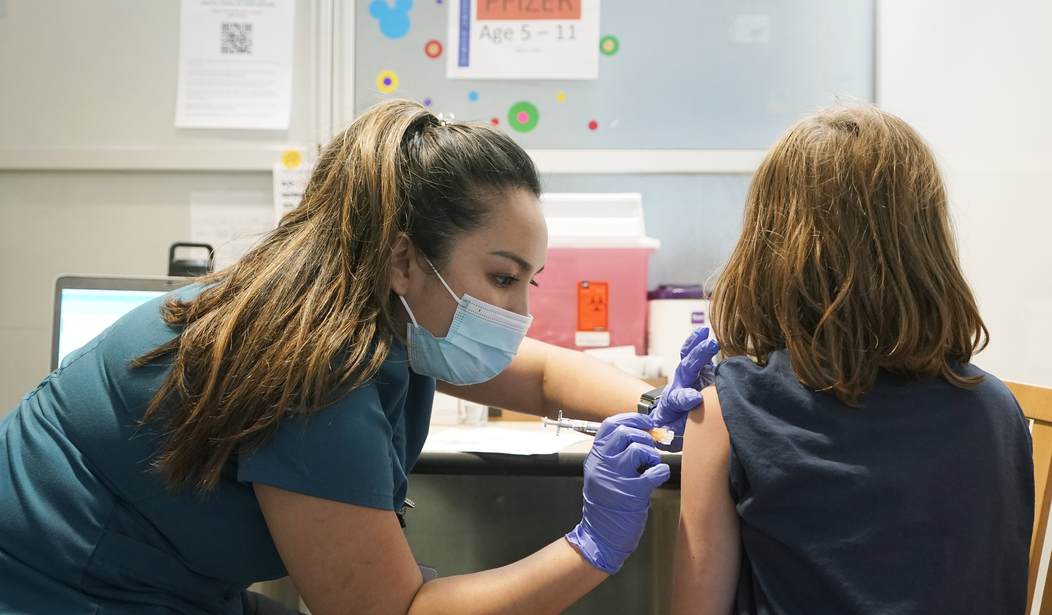A day late, if not a dollar short. As PIX11 reported this morning, several states had already gotten fed up with the FDA’s foot-dragging on the mRNA booster question. New York became the most recent state to give a green light to boosters for all adults while waiting for the FDA’s advisory panel to get around to making a decision:
The FDA instead skipped the advisory panel process and directly authorized mRNA boosters for all adults this morning:
The Food and Drug Administration on Friday authorized Pfizer-BioNTech and Moderna’s Covid-19 boosters for all adults, a move that will make boosters available to everyone ages 18 and up.
Pfizer requested authorization last week, citing results from a Phase 3 clinical trial with more than 10,000 participants that found that the third dose was safe and effective. Moderna requested authorization Wednesday.
“The FDA has determined that the currently available data support expanding the eligibility of a single booster dose of the Moderna and Pfizer-BioNTech Covid-19 vaccines to individuals 18 years of age and older,” Dr. Peter Marks, director of the FDA’s Center for Biologics Evaluation and Research, said in a statement Friday.
The FDA did not seek the advice of its independent advisory panel, called the Vaccines and Related Biological Products Advisory Committee, when reviewing either company’s data.
Next up is the CDC, but this looks like a foregone conclusion:
The US Centers for Disease Control and Prevention’s vaccine advisory committee will meet Friday to discuss expanding booster eligibility. Boosters could officially be administered to all adults after CDC Director Dr. Rochelle Walensky signs off on a recommendation.
However, the majority of adults are already eligible to receive boosters, and several states have officially opened up boosters to all adults already.
More than 32 million people in the United States — about 16% of those who are fully vaccinated — have received a booster dose of Covid-19 vaccine, according to CDC data.
That meeting is scheduled as a noon-to-3 pm ET session, but one has to wonder just how long it will take to review this data. Or whether the meeting will be necessary at all. Walensky could act as the FDA did, skipping yet another bureaucratic review and just making an executive call to approve a process that is already well under way regardless.
In fact, at this point one has to wonder whether the booster data is accurate. Ever since the FDA and CDC — and the Biden administration — publicly embraced studies showing declining effectiveness of early vaccinations, people have likely gone out on their own to get boosted. How many of them would have disclosed their previous vaccinations in doing so? Perhaps some of them, but others might just have accepted a fresh CDC vaccination card and kept their true status to themselves. Walensky isn’t the only person in the US capable of making executive decisions, after all.
In that sense, the FDA and CDC have oddly taken a back seat in this process. Their performance on approvals has highlighted the fact that both organizations appear to value bureaucratic niceties over responsiveness, even in a pandemic. That will continue to raise questions, especially in the FDA’s leisurely approach to Pfizer’s new oral therapeutic for COVID-19. It has already been approved in Europe, but here in the US where it was developed and funded in part by taxpayers, it’s not even scheduled for emergency-use authorization review until after Thanksgiving. Perhaps both agencies can skip booster meetings and move that process to today’s calendar instead.








Join the conversation as a VIP Member